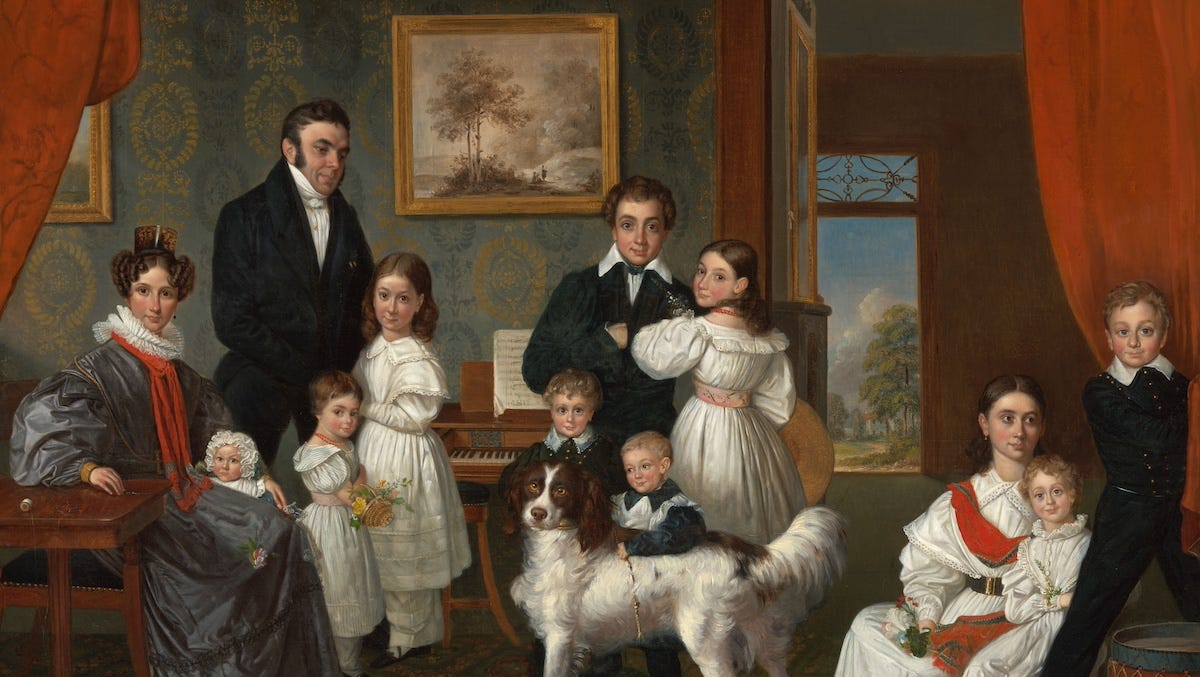This week, Featured Author Ivana Greco reviews Catherine Pakaluk’s book Hannah’s Children, based on her interviews with mothers with five or more children. Greco suggests that we we should pay attention to the fathers in these families, too.
Fertility, Feminism, and Fathers: Learning from Moms (and Dads) with Many Children
Ivana Greco
America’s dads are too often failing not just in their professional lives but in their personal lives too, letting down their children and their children’s mothers.
The husbands of the women interviewed in Pakaluk’s book defy this trend. They are all married (definitionally, per the book’s parameters of study), and their wives report that their relationships are deeply satisfying, including sexually satisfying. One woman, “Miki,” reported that the lasting intimacy between her and her husband stemmed from her ability to “trust him with anything,” and their mutual lack of fear about bringing more children into the world. As one mom, “Eileen,” quipped near the book’s end, a big family reveals the men as “heroes” or “jerks.” It is clear that all of the women in this book would classify the fathers of their own children as “heroes”.
This Week in Sex-Realist Feminism: Science and Women's Sports, Tomboys, and Ignoring Your Kids
This week: Sarah Barker on the flawed study that has been used as a foundation for including biological men in women's sports, Marilyn Simon on why being a tomboy can be good, and Darby Saxbe on free range parenting. Plus: surrogacy's harms, extreme anti-aging, having more kids, important work on men in women's prisons—and more!
From the Archives:
Caleb Morell on the early feminists who placed the good of the family at the center of social and political life.
“Making the World Home-Like”: Fighting the Sexual Double Standard in the Nineteenth Century and Today
Caleb Morell
In 1884, early women’s rights advocate Frances Willard explained, “Were I asked to define in a sentence, the thought and purpose of the Woman’s Christian Temperance Union, I would reply: It is to make the whole world HOMELIKE.” Rather than seeking political power, wealth, or sexual dominance, these women injected into the political sphere a vision of a state in service of the interest of the family.






